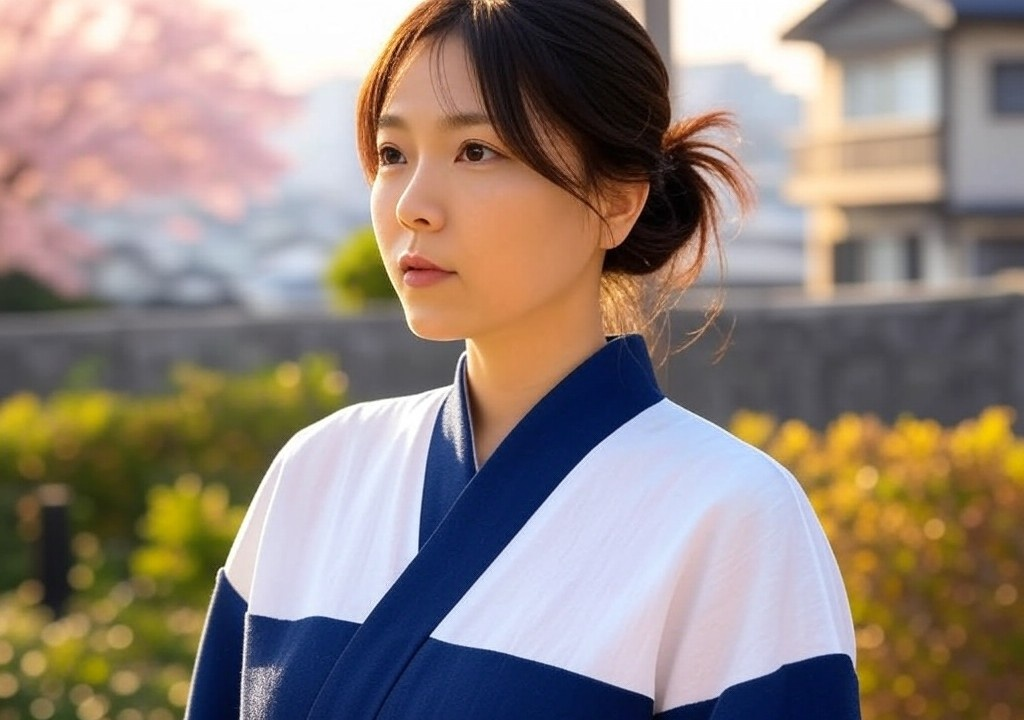I grew up believing my family was the embodiment of harmony. Not Brady Bunch-level perfection—our meals didn’t end with a cheerful group hug—but I was convinced there was an unspoken understanding that my parents’ love was the quiet, unshakable kind. This fairy tale wasn’t based on grand declarations of devotion or any sort of Hollywood romanticism. Instead, I clung to subtler “truths”—the way my father brewed tea exactly to my mother’s liking every morning, or how they’d slip out for a shared pastry on Sunday afternoons.
To me, their love was steady, practical… maybe a little boring (in the comforting way that socks fresh from the dryer are boring). It wasn’t until much later, after years of my own misadventures in dating, that I realized I’d mistaken quiet partnership for a version of love that, in hindsight, felt incomplete. Because here’s the twist: My parents—my poster couple for pragmatic, unshakable romance—were partners in a kind of performance. A beautiful symphony, yes, but one that relied on rehearsed routines rather than unvarnished connection.
How did I figure this out, you ask? Let me take you on that journey.
"We Don’t Fight” and Other Lies Good Couples Tell
Growing up, I never saw my parents argue. Public bickering wasn’t their style—no slammed doors, no awkward silences at dinner. So, of course, my adolescent mind decided that arguing was inherently bad. A truly loving couple, I thought, was like my parents—silent collaborators in life’s everyday script.
Fast forward to my first serious relationship in college. My boyfriend (let’s call him Akihiko) and I got along well… until we didn’t. The smallest disagreement sparked a slow, simmering tension. One day, he accused me, mid-argument, of shutting down whenever things got real. “You act like we’re supposed to be perfect all the time,” he said, exasperated. He was right—I thought love meant the absence of conflict, not the ability to navigate through it. I had convinced myself that confrontation was relationship kryptonite. Spoiler: Akihiko eventually broke up with me, pointing out that “You can’t love someone unless you’re willing to fight for them—or with them.” It stung.
Years later, I finally hit on an uncomfortable truth about my parents’ “perfect” marriage. They didn’t fight, sure. But maybe that was because they avoided tough conversations altogether. My father’s passivity around conflict—the same studied calmness that helped him carefully organize hundreds of years of historical documents—wasn’t just patience. It was his escape hatch. My mom’s reluctance to express her frustrations aloud? A master class in repressed emotion.
When I gently brought this up with my mom as an adult, she laughed knowingly. “We were very good at keeping the peace,” she admitted. “But sometimes, peace means you miss your chance to grow.”
The Real Problem with “Perfect”
Here’s the thing: For most of us, love—whether romantic, familial, or platonic—isn’t about crafting a flawless narrative. It’s about vulnerability and the willingness to embrace someone else's imperfections. My parents’ no-conflict partnership looked ideal to me because I was watching it through the lens of a child only glimpsing the surface. Their marriage wasn’t dysfunctional, but it wasn’t the full picture of intimacy either.
Think of it like a Monet painting—those beautiful water lilies, viewed up close, reveal swirling, chaotic brushstrokes behind their symmetry. Love and relationships require you to get up close and personal with the messiness. But I hadn’t understood that because I’d spent years believing relationships were supposed to look like Instagram-ready vacation photos—carefully curated, filter applied.
Cue me walking into my 30s with several failed relationships and zero grasp of why I felt unfulfilled. And somehow, despite years of academic study in Tokyo and Paris, I had missed the foundation of deep (yet practical) connections: communication.
What saved me? A therapist who introduced me to the radical idea that fights aren’t failures. Arguments, she explained, are often a way relationships breathe. Sure, some arguments are toxic, but many are invitations to define boundaries and articulate values. It was as if someone handed me the antidote to years of internalized family myths.
The Takeaways: Redefining What Love Looks Like
If, like me, you’re realizing you might have inherited some less-than-helpful ideas about love, don’t panic! Here’s what has helped me detox my skewed perception of relationships:
-
We’re Not All Picture-Perfect
Real relationships thrive when you ditch the comparison game. Whether it’s your parents’ partnership, your friend’s seemingly flawless marriage, or the most heart-melting on-screen couple from Studio Ghibli (yes, I’m looking at you, Howl and Sophie), every bond has its own rhythm. Don’t confuse someone else’s highlight reel for a deeper truth. -
Let Conflict Teach You
Fighting doesn’t mean your relationship is doomed—it means two people care enough to voice their needs. Instead of shutting down during disagreements, try really hearing out your partner. Are they vocal because they feel unseen? Are you shrinking back to avoid discomfort? Bonus: Actively listening may save you from ever creating “silent resentment syndrome.” -
Practice the Art of True Connection
My parents were brilliant at the logistics of partnership (bill-splitting, perfectly complementary schedules). Emotional connection? Not so much. Real connection doesn’t live solely in the practical—it’s fed by intimacy, shared dreams, and unfiltered truths. -
Rewrite Your Relationship Myth
We all grow up with narratives that shape how we approach love. Some are helpful (“love means loyalty”), others less so ("a ‘good’ couple never fights"). Spend time reflecting on your own myths. What did you inherit from your parents? What fits, and what feels like a secondhand sweater too itchy to keep wearing?
A Parting Thought
My parents are still together, by the way. And the older I get, the more I appreciate the quiet tenderness between them. They’ve found peace in their routines, even if it doesn’t always include the soul-baring depth I once thought they had (or hoped they did). That’s the beautiful thing about relationships—they don’t have to look the same for everyone.
What works for you might be expressive arguments, tearful reconciliations, and spontaneous Tuesday morning coffee dates to make up. For me, it’s about learning to embrace imperfection, step outside the scripts I grew up with, and choose connection—even when it’s messy.
So here’s my invitation: Leave behind whatever myths hold you back from fully engaging. Rewrite your story, fight when you need to, and grow—because love, in its truest form, is far more than perfection.




















